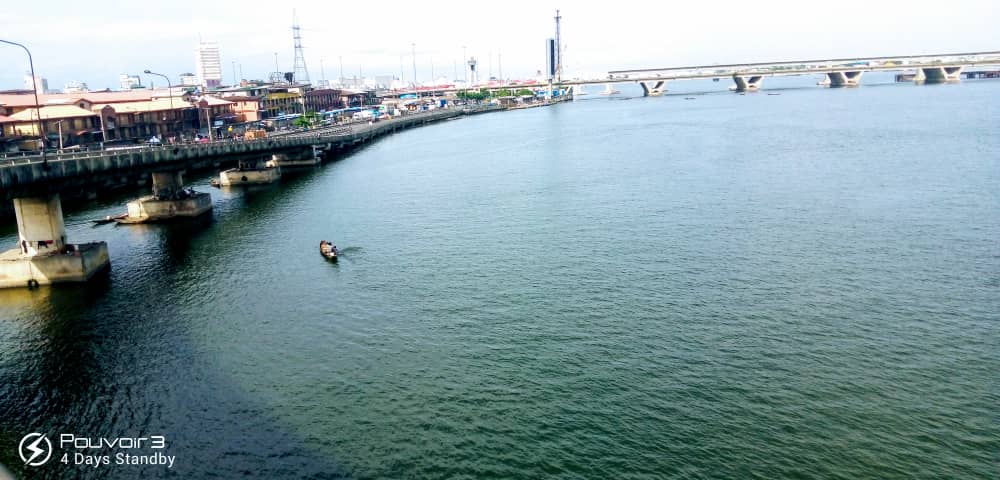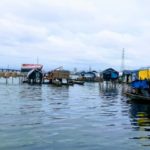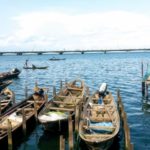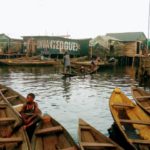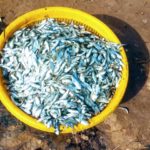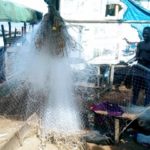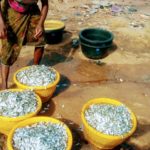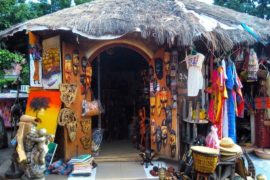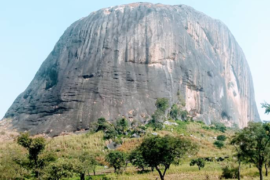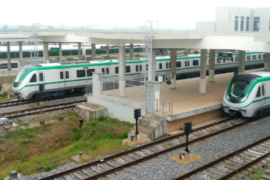The Lagos waterways arguably hold a lot of potentials to be explored. To a tourist and adventurer, it makes an exciting environment for sightseeing and enhances the aesthetics of the city. The aquatic view ushers in the avid traveler to the waterways and complements the Third Mainland Bridge and the high-rise buildings across the sea. The Third Mainland Bridge is one of the longest of three bridges connecting Lagos Island to the mainland as the others are the Eko and Carter bridges. Third Mainland Bridge was the longest bridge in Africa until the year 1996 when the bridge located in Cairo in Egypt reached its completion. These bridges are interesting sights to behold from an isle.
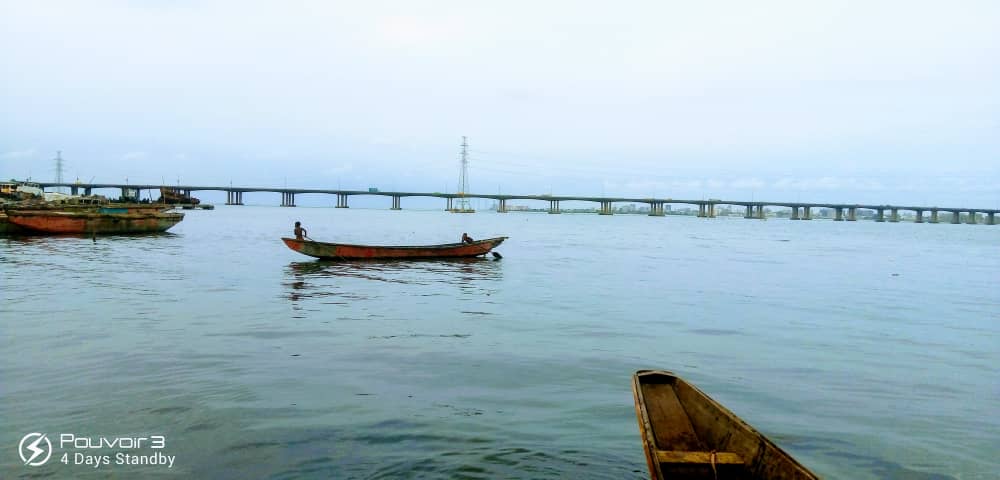
As a lover of nature, the sea offers an ecstatic experience that wires your soul into the vibes that overlay the water ornaments and seabed. It pleasures recreation and relaxation during holidays and vacations. For lovers who relish adventures of the countryside and suburb-like-ghettos, visiting such places guarantee a refreshing experience. As a writer, there may never be a perfect scenery for clearer articulative thoughts than the sights from the island. These are what the Lagos waterways, its lagoons, and ghettos are, and indeed cruising on this sea can at times remind one of The Voyage of the Odyssey and The Life and Adventures of Robinson Crusoe on the Treasure Island.
Malik Suleiman, a young man who issues tickets at the harbor, stated that “It’s always lively every weekend at sea. A lot of people cruise speed boats and yachts here a lot. It’s a happening place for fun lovers”.
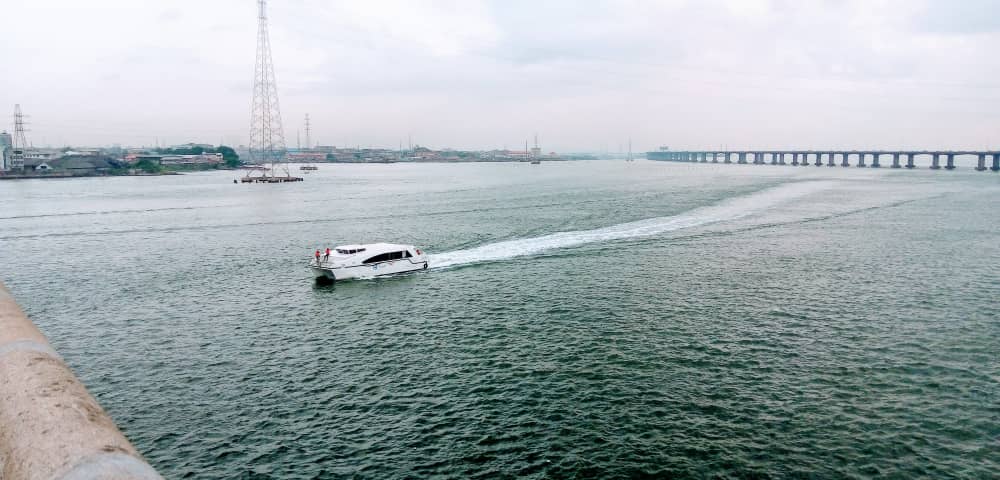
Waterways transportation is augmenting to solve the growing transport infrastructure deficit in the state, and the sea serves as a fishing haven that employs locals and citizens from neighboring countries.
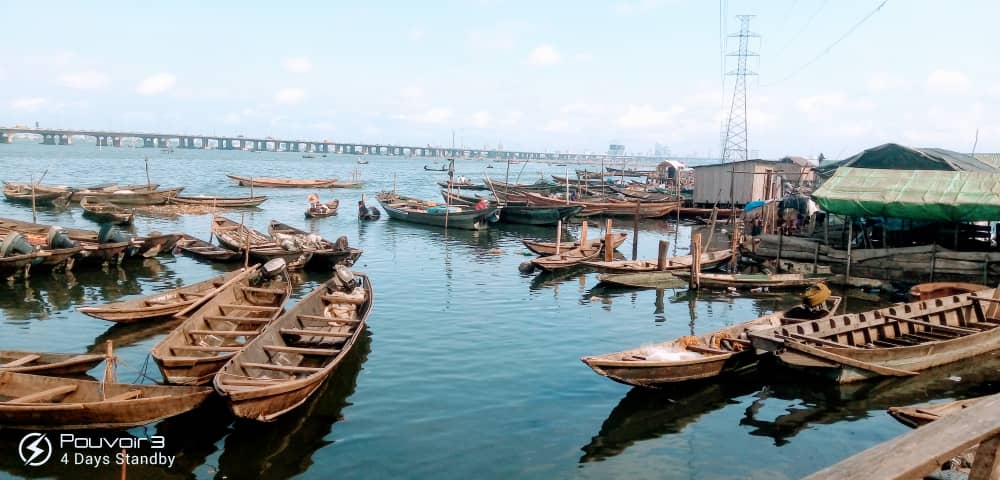
From the government’s viewpoint, the suburbs and ghettos are an eyesore to the city’s development plans. Although there have been model plans to transform the communities occupying the waterways into waterparks for tourist attractions, the Lagos State government seems to rescind as it makes plans to demolish much of the communities around the waterways which pose as a source of livelihood to the locals.
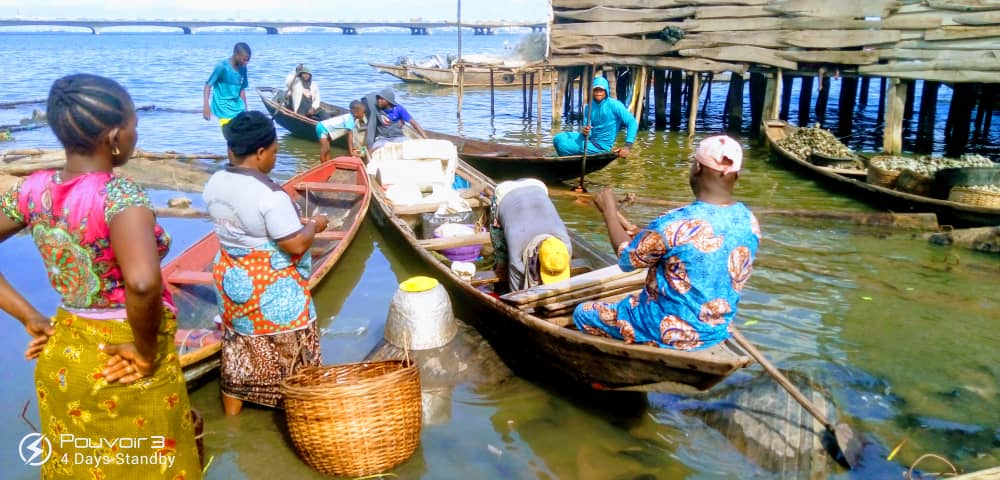
The inhabitants of these ghetto-communities state they would resist every move by the government to displace them from the source of their livelihood without any alternatives or compensation. A resident and settler from Ago Sogunru, one of the largest ghettos in the suburbs of waterways (who does not want his name mentioned), stated that they have no other home to go to if they become displaced from their settlement. He indicated that while they do welcome the development, compensation should be offered or have the settlers included in the development plans to ease and improve their lives. ”The people are not anti-development. The government doesn’t want us here. This place was bequeathed to us by our forefathers as our source of livelihood. The government should carry us along in developing our habitat”, he stated.
Ago Sogurun is one of the largest ghettos in the suburbs of the Yaba Lagos waterways, with more than two thousand persons in the population.
The settler in the suburb whom I called Olaleye (also not a real name), offered to conduct me round the ghetto and its lush. He explained to me the living challenges of the residents and their notable skills. Stating that they are not only fishermen but also craftsmen. Who build wooden boats, canoes, and fishing nets. According to him, the ordeal is that they lack schools and basic amenities such as good potable water and health facilities. During emergencies, their solace is Yaba, a few kilometers away from where all other facilities are situated. He claimed that the government wants to sell the land to real estate developers and wealthy individuals who crave for “water-view” apartments. This perception highlights the reason they have long resisted the displacement of the government but want an inclusive development of the plan. “These are our fears”, he said.
About three ethnic groups live in Ago; the Egun people from Badagry, Egun people from the neighboring Benin Republic, and the Igbos constituting the few minorities doing trade and businesses. The story of the people living in these jetties is a sympathetic one due to non-existent or visible development and town planning. Its canals filled with filth and debris, constitute health dangers to the people. Life in this area is a complete depiction of the social reality of ravaging poverty in the countryside. Moreover, the location still reminds one of some Nollywood scenes that portray survival, struggling, and a call for intervention to lift the people out of misery. Such a place can be transformed for epic movies too!
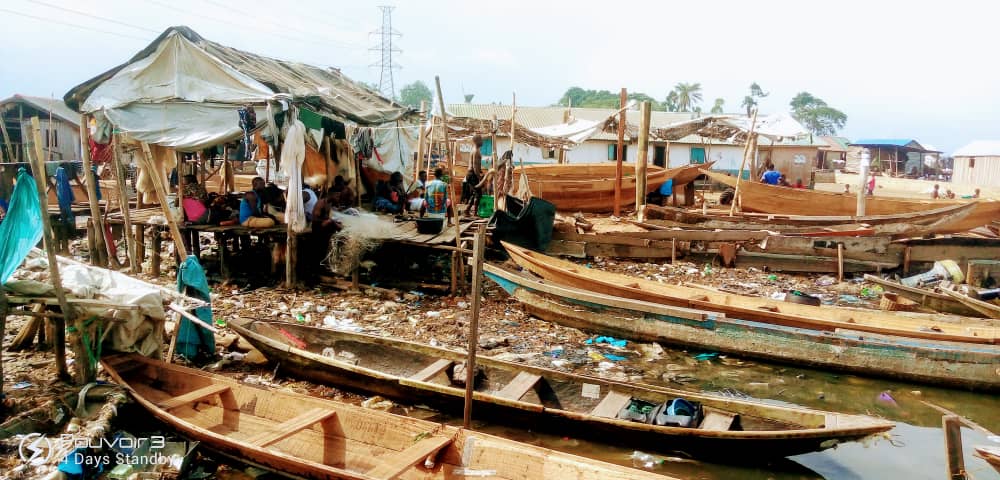
The jetties around the waterways occupied by locals and foreigners are engaged in fishing. They are the largest supplier of fishes to the local markets in Lagos state. An estimated 0.1% revenue accrues from the fishing activities, and analysts accord that if properly harnessed, it could be an essential contributor to the state’s GDP.
Varieties of fishes get caught every day. Such include tilapia, catfish, crayfish, crabs, and seashells. The seafood caught are then supplied to the local market with either fresh or smoked fishes. The same is cheaper when compared to the imported ones.
Meanwhile, the empty seashell has great economic importance. They can be useful in mixing concrete for house foundations and also industrially if properly harnessed.
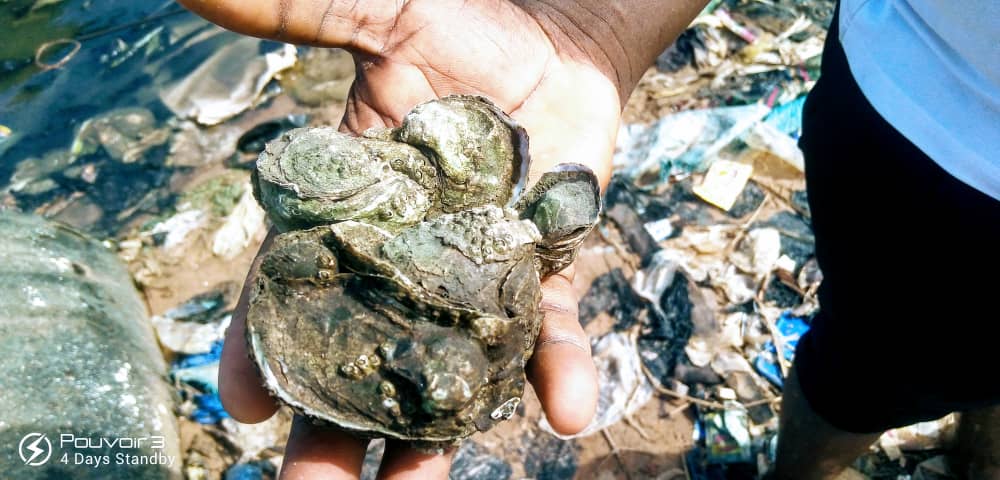
Fishing is a lucrative venture and a source of employment for teeming youths, skilled and unskilled. The jetties, more often like creeks, contain built-in makeshift houses or floating houses on the sea harbors. These “houses” occupied by natives from and around Lagos have mainly for occupation, fishing, and transportation. Young boys and girls between the ages of seven and upward are skillful in ferrying and the use of local wooden canoes to transport passengers to and from Lagos and other suburbs. Life here in these communities and the ghettos in the suburbs of the waterways in Lagos is quite fun at the sea as they remain in constant touch with nature.
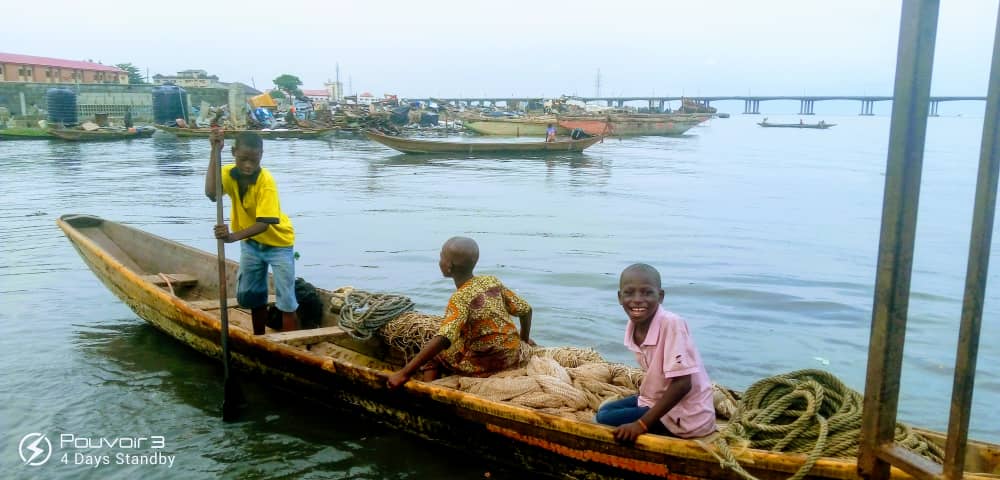
The activities around these ghettos and their occupation remind me of my childhood experience. A son of a fisherman, my father once told me that the business of catching fish comes with luck, and experience matters a lot. Sometimes you need to commune with the spirit of the river, but most importantly, it has to be a craft that you passionately pursue.
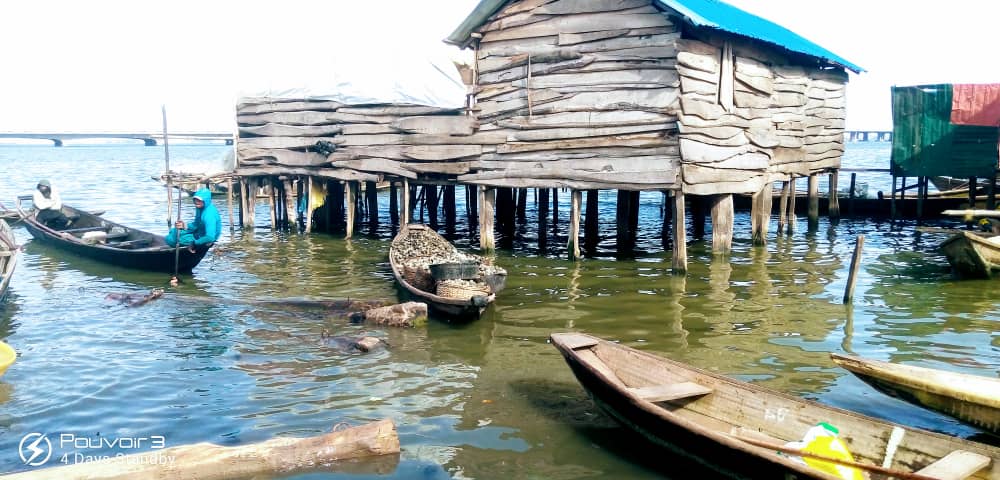
Sunday Mengo, a man living in a floating house with his family, stated that he has benefited from such luck since he moved to Lagos to find a livelihood by fishing. A native of Badagry from the Egun speaking ethnic groups, Mengo said he sustains his household by fishing. “The sea is my office. I live here with my family. Sometimes I make a lot of catch and sometimes I don’t. It depends, and at times the season improves the outcome, especially when it rains”, he stated.
The riverside is also a hub for large commercial activities.
– Suleiman
Suleiman, a youth selling tickets, stated that at least once every week, the riverbank used to be crowded and rowdy as many traders converged to buy fishes and other items to resell in the mainland markets.
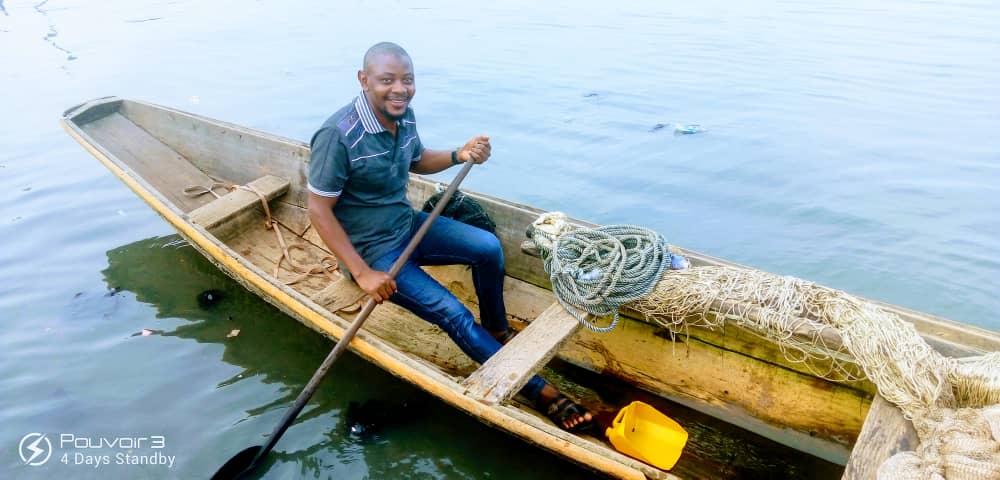
Life in these ghetto-communities along the Lagos waterways really could be fun. Yes, it is tough, and quite a huddle for the dwellers because of some of its challenges, but can ultimately be a fun environment for an adventurer or tourist.
Both government and investors can do more to transform this community and enhance the quality of life of its residents. Furthermore, looking to the opportunities and potentials that abound in the fishing and tourism sectors within this community and its residents can be beneficial to the state and its people.


